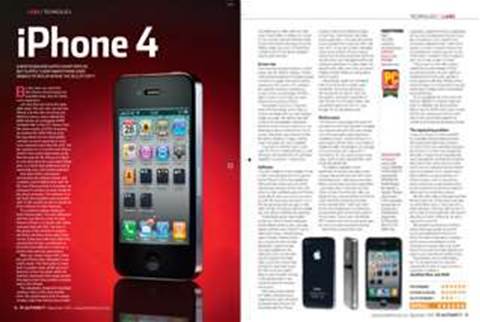Correction appended.
The telcos' restrictions on how users access the 3G network make a very good case for the channel to deal directly with the government-operated NBN company rather than through a telco.
The latest update to the iPhone's operating system, which accompanied the release of the latest model, the 3GS, enabled the mobile phone to operate as a 3G modem. In tethering mode iPhone owners can connect or tether their phones to their laptops to access the internet.
The idea of iPhone users tethering to the 3G network threw telcos into a tizzy. Optus insisted on charging its iPhone customers an extra $10 a month if they wanted to tether.
Telstra has not enabled iPhone tethering since the latest operating system update - an indefensible position given that it lets you tether with a Nokia N series, for example.
So why is one phone allowed to tether freely but not another?
One reason given by AT&T in the US is that the iPhone would put too much strain on its network.
The brilliantly simple user interface that has sold so many iPhones will make it more likely that customers will try to use their phone as a modem. Although tethering has long been an option on phones from Nokia, Samsung, Motorola et al, most owners have not bothered to use it.
In Australia, the Australian Mobile Internet Insight found iPhone users consumed six times as much data than other mobile phones.
The telcos' fears are borne out by past experience. In less than a year, Apple's flagship model was responsible for 43 percent of mobile internet surfing.
However, there are other reasons for not wanting tethering. A likely one is that the telcos are trying to protect the fantastically profitable wireless broadband market.
Optus charges $100 for up to 6GB download on its 3G USB dongle modem, which itself costs a customer around $100. Optus' "Phone as a modem" plan gives you the same data download for $45.
Telstra has its own reasons for hating Apple's phones. Afraid to miss out on a hit product, it has been promoting the iPhone through gritted teeth. The telco competes directly with iTunes through its Bigpond's music and video store and is pushing Telstra-branded services by skinning every mobile phone it sells.
Well, almost all. There was no way Apple was going to let any telco mess with its interface or its App and iTunes Stores.
The main selling point for a "high-bandwidth" network like 3G is that you can send more data over it. Telstra, Optus and 3/Vodafone have been promoting this message to get customers to move over from 2.5G.
But unfortunately it appears that the telcos are only happy for customers to use the network on their own terms.
As the channel knows, you can only justify premium prices by offering extra services. But customers are being charged premiums simply for network access.
Telcos will be working hard to convince resellers to buy their products rather than deal with the NBN Company directly. On past behaviour, however, going direct looks like the best deal yet.
Correction: The original article stated that Vodafone had increased its iPhone plans by $5 "across the board" to cover tethering costs. Vodafone in fact increased its lowest plan ($49 cap, $0 upfront) by $10 but bundled in 500MB of data. Previously, those on the $49 cap had to pay $9.95 a month for 200MB.
Click here to read the follow-up to this story.
What do you think?




.jpg&h=142&w=230&c=1&s=1)








.jpg&w=100&c=1&s=0)








_(1).jpg&q=95&h=298&w=480&c=1&s=1)


